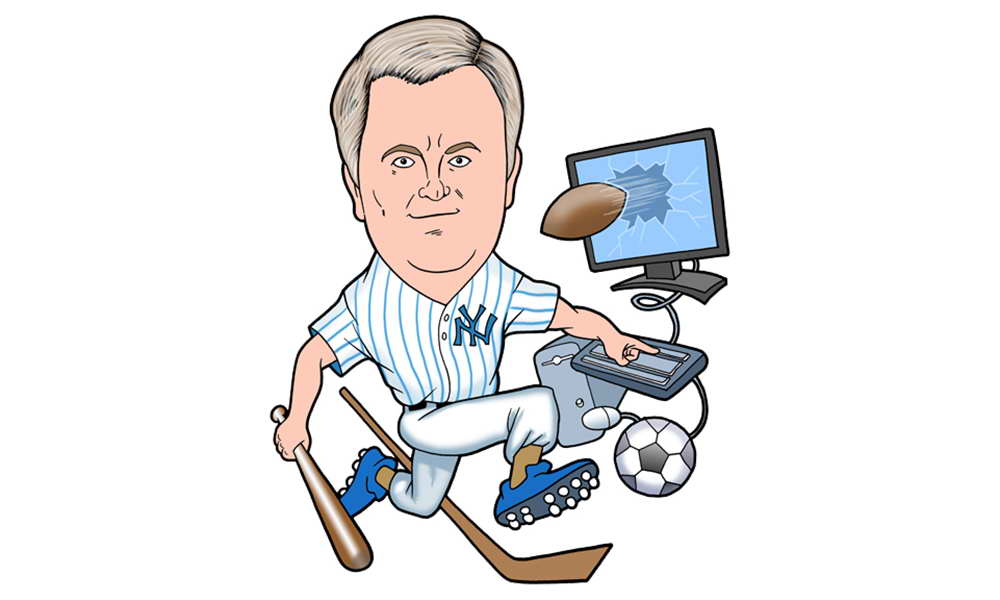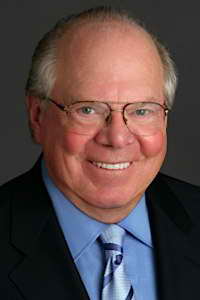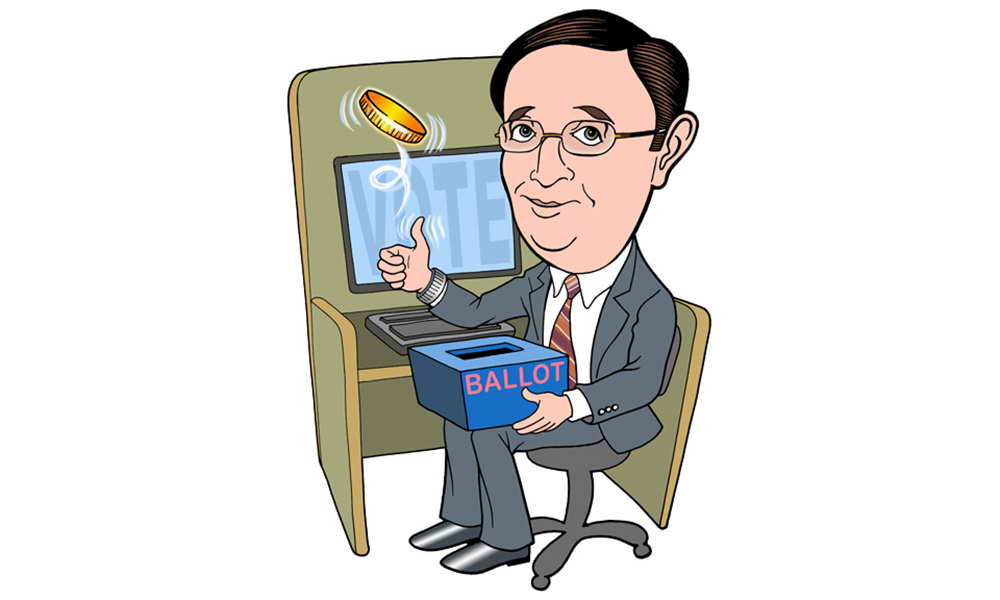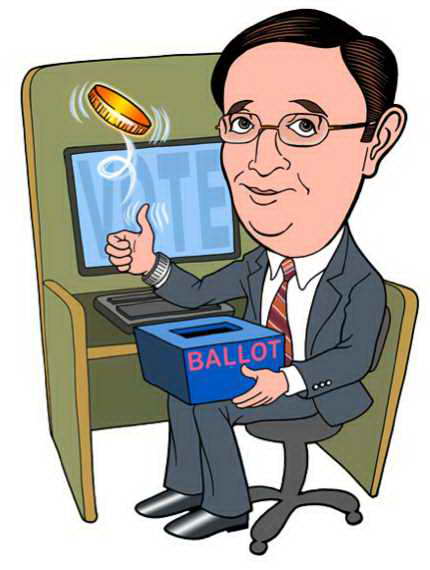By John Sparks
Election Day 2012 is more than a year away, but for Republicans, the contest to find a candidate to oppose President Barack Obama is in full swing. What should GOP candidates be doing now? Which issues will be relevant, and where do the candidates stand? The Marist Poll’s John Sparks speaks with Marist Poll Analyst and syndicated political columnist Carl Leubsdorf who writes a weekly column for The Dallas Morning News.
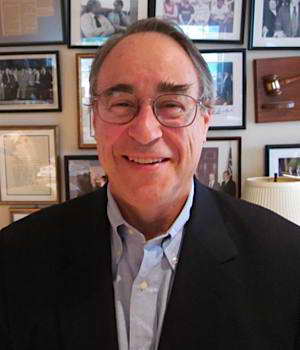
Carl Leubsdorf
John Sparks
Carl, only 17 months until Election Day 2012. Now that’s a lot of time unless you’re a potential candidate. President Obama has a lock on the Democratic nomination, but if you’re a Republican who wants to be president, what do you need to be doing now?
Carl
Well, and it’s, of course, for Republicans, the timeframe is a lot shorter, because the Iowa Caucuses is the first test will take place either in February or perhaps in January, so that’s only seven or eight months. There’s several things a candidate needs to be doing now. One is raising money. The way presidential politics works is you need certain amount of money to maintain an operation and to run media and you use a certain amount to get to the opening test, and then you have to have the facility to raise additional money if you manage to survive the opening test, so candidates may typically spend a lot of time fundraising, and that’s an area where a couple of the potential candidates have a big advantage. Mitt Romney, who ran before and then showed considerable capability of raising, and has already raised a lot of money, has a big national organization to do it and Sarah Palin because I think she could gem up a campaign very quickly and raise a bunch of money because of the intensity of her following. So, that’s one thing that you do.
You’re getting staff together. You’re getting people to run your operations, especially in the three crucial early states – Iowa, where they have the caucuses; the New Hampshire primary, which comes eight days later; and the South Carolina primary, which has become a crucial test for — especially for Republicans. Every Republican nominee since 1980 has won in South Carolina. The other early test is the Nevada Caucuses. That may be less of a significant place to where not all the candidates may campaign there. So, you’re doing staff.
The third is you have to have a certain understanding of the issues, and for candidates, it’s almost too late to do that. That’s what they’re supposed to have done over the last two or three years because — the reason is because the candidates, it’s fine when they make speeches and do their own thing, but starting on Monday the 13th of June, we’re going to have a series of Republican debates, and that’s a real opportunity for candidates to show that they understand the issues and what their positions are, but it’s also a potential pitfall for candidates who are not up to speed. One of the hints that I got a couple months ago that Mike Huckabee, the former Arkansas governor, was probably not running was that he was at a press session that I was at, and I thought that he was not up to speed on the issues. He’d had problems with that four years ago, but we sort of forgave him because he didn’t have much money and a small staff. Now running the second time, he really needs to know that. I think Sarah Palin could have problems with that if she runs. She continually seems to say things that aren’t quite right. And you’re running against people like Romney, who’s been around the track before, and Michele Bachmann, who’s a member of Congress and so has had to vote on a lot of these issues; Newt Gingrich, who knows a lot of substantive things, so you got to be prepared on the issues.
John Sparks
Let’s say you’re a Republican who wants to be a president, what issues do you believe that President Obama is most vulnerable on? Bin Laden didn’t buy the groceries for instance.
Carl
Well, clearly the key issue at this point looks like it’ll be the economy and the fact that the economy has not recovered as quickly from the deep recession that President Obama inherited as he would like and as certainly as Americans would like. There’s a new Washington Post poll and it shows, for example, that more people think the recovery has not started than think it has started. The statistics don’t say that. Corporate earnings don’t show that. The increase in employment, modest though it’s been, doesn’t show that, but the public feels that way, and that indicates a vulnerability for Obama and an opportunity for the Republicans.
Now having said that, their issue at this point is it’s easy enough for Republicans to beat up on the Obama just as it was for Democrats four years ago to beat up on President Bush. What they need to do though is talking to — if they’re going to be talking to Republican audiences, and some of them are going to try to want to draw differences to show that either they’d be a stronger candidate or that they’re a better Republican. It’ll be interesting to see, for example, if differences develop on the controversial Republican budget that passed the House, the one devised by Congressman Ryan of Wisconsin. There are some signs that some of the Republican candidates, while generally in favor of the thrust of that, are not signing aboard the plan to phase out Medicare down the road, which has proved to be very controversial. So I think there will be some effort to draw differences.
There’ll also be an effort to point out vulnerabilities on the issues of their fellow candidates, and a number of the Republican candidates have vulnerabilities at least in terms of the Republican electorate. Mitt Romney well publicized because the healthcare plan that he passed in Massachusetts was considered in some ways the model for the Obama National Health Care Plan. The Republicans are strongly against what they call Obama Care, so that makes Romney vulnerable, especially the concept that everyone would have to buy health insurance, even though ironically that’s something that was originally devised by the Republicans.
Another issue is the environment, the so called Cap and Trade proposal that a lot of Republicans were for in the past, including some of the candidates like former Governor Pawlenty of Minnesota, former Governor Huntsman of Utah, popular Republicans now. They’re all going to have to be against it, so the candidates will be picking at each other at some of these issues.
John Sparks
How important will social issues be in this upcoming election?
Carl
I think social issues will not be that important. For one thing, I think that the Republicans pretty much agree on those issues. There are a couple of small differences. Governor Huntsman, I believe, is in favor of at least civil unions if not gay marriage. Most of the Republicans are against that. Romney was for it originally but is now against it. They’re all strongly against abortion rights. Now, what will make a difference on the social issues is that I think some of the religious conservatives who were an important block in the Republican Party feel that some of the candidates are much more with them and much more genuine in their positions on these than the others. So, they’re likely to back candidates like Michele Bachmann, maybe Rick Santorum, and some of the others, maybe Newt Gingrich, more likely to back them they’re going to back Governor Romney or Governor Huntsman. In the general election, I think it’s the divisions between the parties are pretty well known. They haven’t changed. The Republicans will take — will oppose abortion rights in their platform as they have consistently since 1980. The Democrats will support it. I think within an election where the economy is such a crucial factor and is going to be such a big issue, social issues will not play that a big of role, but you’ll hear a lot about that during the Republican primaries.
John Sparks
What about foreign policy, specifically the Middle East, Israel, Libya?
Carl
Again, I think that it’s too early to understand. With the economy, we know that whether it’s going to be better next year or worse next year, it’s going to be an issue because Americans, when push comes to shove, they care about their jobs, the future of their jobs, the jobs for their children, and the well-being of their families. Foreign policy issues come and go, and a lot of that really depends on what’s happening in the world at the time of the election. President Obama recently got into some problem politically on the Middle East issue by saying something which in fact was true and had been U.S. policy all along, that the starting point for any Arab-Palestinian agreement would — Israeli-Palestinian agreement would be the boundaries from 1967 but with changes. Critics said, “Oh, he wanted to go back to the boundaries, and Israel would never do that.” Republicans immediately jumped on that because several said that he had thrown Israel under the bus. I mean this kind of rhetoric you hear always. The fact is Jewish vote has been heavily Democratic in recent years, more because of domestic policy, I think, since all American politicians are in favor of Israel, and I don’t think that’ll be a big issue.
Now depending what’s happening in Iraq and Afghanistan and Libya, that could be an issue. I think President Obama will benefit to some degree from having killed his — American forces having killed Osama bin Laden, and he’ll benefit to some degree if he’s able to show some more drawdown of U.S. forces in some of these wars, something he promised he’d do.
John Sparks
I count about a dozen who have either announced for the Republican nomination or may be flirting with the idea. I’d like go down my list and have you comment about each one…
Carl
Sure.
John Sparks
…and what do you think the challenges might be for each one of those, and you mentioned Mitt Romney. He announced June the 2nd. Would you say he is the front runner?
Carl
He is the closest thing to a front runner that there is. When you take the non-candidates out of the race, he leads in the Republican polls. The Republicans… And he’ll probably raise the most money. He has the biggest organization. He has the most experienced staff, and he’s a second time candidate. The Republicans have had a tendency in the past to nominate the next person in line and to some degree I think that’s true, especially with Governor Huckabee out of the race. His problem is that he’s not very popular among his fellow Republicans, especially the other candidates. They don’t think he’s very genuine, and there’s some signs that Republican voters don’t either. In 2008, he was the leader at one point in both Iowa and New Hampshire and ended up losing in both states, and there was some sense that he didn’t wear well as a candidate whereas some candidates, the more they campaign, the more popular they get. Seemed with him, the more he campaigned, the less popular he got. So, he obviously [has] a lot of strong opposition from the more conservative wing of the party that thinks he’s a closet moderate. He was pretty moderate when he ran for Senator against Ted Kennedy in Massachusetts in 1994. He’s changed a number of his positions on social issues since then, and he also politically, he’s unlikely to win Iowa and is unlikely to make it as the major focus of his campaign, although I’m sure he will campaign there, but he’s put all of his major emphasis on New Hampshire. He was of course governor of Massachusetts. He has a summer home in New Hampshire. He announced his candidacy there, and the fact is he has to win in New Hampshire to be in the race. You become a player in the race once the voting starts by winning in one of the early states. If you can’t win in the early states, you’ve got a lot of problems because the support tends to go to those who are succeeding. He has to win in New Hampshire. If he doesn’t win in New Hampshire, he’s not going to win in South Carolina, and he probably won’t win in Florida and maybe not even Michigan where his father was governor, so that’s what he has to do. But, he starts out as the favorite in New Hampshire and is likely to be one of the two or three finalists in the GOP race.
The real wildcard in the Republican race is, of course, is Sarah Palin, the former Alaska Governor who gained instant fame when John McCain picked her as his running mate in 2008. She has a lot of hardcore support in the Republican Party, but even a lot of Republicans have become increasingly convinced that she would not be a good president. It’s interesting to note that she’s known for, of course, attacking what she calls the lame stream media, but some of the most trenchant criticism of her have come from Republicans and from conservatives, so it’s not only the liberals who are after her. She showed in her visit to the historical sites in the week of Memorial Day again her ability to command the spotlight and get attention and did in some way detract from Governor Romney’s announcement in New Hampshire. She certainly got a part of that story with her criticism of him. So… but whether she’s running for president or just wants to have a role in it, she certainly — she’s expressed views about certain candidates. She’s critical of Governor Romney. She praises Rick Perry whom she supported also when Governor Perry was running for re-nomination in Texas against Senator Kay Bailey Hutchison. The general assumption is that she probably is not enthusiastic about Michele Bachmann’s candidacy because she wants to be the número uno conservative Republican Tea Party woman, and it doesn’t help her for someone else to emerge who’s a competitor for that. But exactly what’s she’s up to, whether she’s running isn’t clear. She could have a big impact on the race by supporting one of the other candidates. She may well do that, so I think she’ll remain a figure to watch even if she’s not going to be a candidate.
John Sparks
What about former Pennsylvania Senator Rick Santorum?
Carl
Now, he’s one of the longer shots in the race. Of course, the last time he ran for office, which was for re-election in Pennsylvania in 2006, he got beaten rather badly, and he’s one of the very — one of the candidates making a strong pitch for the religious conservative vote. His… he almost certainly will have to show something in Iowa, and that’s going to be a tough job for him because he’s up against two candidates who are from the neighboring state of Minnesota, former Governor Tim Pawlenty and Congresswoman Michele Bachmann. And Congresswomen Bachmann, in fact, is an Iowa native, born in Waterloo, Iowa, where she’s going to announce her candidacy. Newt Gingrich, when he announced — the former House Speaker, when he announced his candidacy a couple of weeks ago, had a rough time because of his criticism of the Ryan budget, the Medicare proposal, and then he got some bad publicity over his buying expensive jewelry for his wife at Tiffany’s, but at the same, he was drawing pretty big crowds in Iowa, and he could be a player in the Iowa Caucuses too. So, Santorum is going to have beat out most of those three – Bachmann, Pawlenty, and Gingrich, and I’m not sure that he can do that.
John Sparks
Those were the next three on my list, and there’s also another that has consistently made some noise down in Texas, Ron Paul, the Libertarian.
Carl
I think Ron Paul has a limited amount of support. I mean he has a fervent following, and he will show once again that he has that following, but there’s no sign that he can broaden that support enough to be nominated. He’s sort of an odd duck in some ways in this field because being a Libertarian, he does not share all of the conservative views on the social issues, and he’s also against the wars in Iraq and Afghanistan. He’s voted against funding for that. He’s going to be a lively figure in the debates, but he’s almost certainly not going to be the nominee.
John Sparks
There’s another Libertarian, former New Mexico Governor Gary Johnson, what are his chances?
Carl
Well, I think they’re pretty minimal because it’s hard to get attention in a big field. The Democrats discovered that last time. There was some fairly prominent Democrats running like former Governor — then Governor Bill Richardson of New Mexico, Senator Biden of Delaware, who of course, ended up as the Vice Presidential nominee, Chris Dodd, a prominent Senator from Connecticut, and they were unable to get traction because the race was so focused around Hillary Clinton and Barack Obama, and even John Edwards, who had made a good run for the nomination four years earlier, before, of course, all of this legal problems arose, had trouble becoming the third getting into that Clinton Obama mix. So, I think some of the Republicans are going to have the same problem, and a rather obscure figure from a small Western state is going to have a lot of, like Paul Johnson, will have a lot of trouble breaking through.
John Sparks
You mentioned Michele Bachmann, and that makes me think of the Tea Party and another Tea Party type I think of Herman Cain, the radio personality…
Carl
Well and Herman Cain is the early surprise in the Republican field. Herman Cain is a black businessman from Atlanta who headed — was it Godfather’s Pizza, I think?
John Sparks
Yes.
Carl
And, he also has radio talk show. He… the Tea Party folks love him, and although he’s sort of been dismissed by the establishment, his numbers have consistently risen so that, for example, there was a recent poll in Iowa in which I think Romney ran first, about 20%, but Cain was tied for second with Sarah Palin, and I should’ve mentioned him among the candidates in Iowa who have a potential of breaking into that religious conservative group, the ones that Santorum was going to have trouble beating because Cain is certainly a player in that too. Now, whether he can beat out Michele Bachmann and how Pawlenty figures in it, those are two interesting… the two candidates from Minnesota. Pawlenty, the former governor, appears to have gone somewhere to the right since he became a candidate. While he has an evangelical background, his basic appeal was that he was a reasonably successful conservative governor of a liberal state and got along with the Democrats and the legislature for the most part, and that would be his argument. He’s… now he realizes that being from Minnesota he has to make a showing in Iowa, and so he’s trying to do that two ways. One is by spending an awful lot of time in Iowa, which is exactly the right thing historically to do, and the other is putting a little more stress on the social issues that he might otherwise. Now, he’ll be up against Michele Bachmann, the congresswoman from Minnesota, who was, as I said, born in Waterloo, Iowa. She’s sort of a surprise in the field. I think as long as Sarah Palin looked like a candidate, no one had paid much attention to Michele Bachmann, but Sarah Palin increasingly looks to most Republicans and most analysts like she’s not running, and I’ve seen Michele Bachmann speak before conservative audience, and she gets a pretty good reaction. People like Romney and Pawlenty are not very exciting figures, so someone who can create a little excitement in the right of the party, like a Michele Bachmann or like a Herman Cain, might show something.
The Iowa Caucuses are sort of an odd thing because being caucuses, the turnout tends to be less than in primaries when — and tends to be more confined to the activists in the party. Now that was not true of the Democrats in 2008. The turnout for the caucuses was enormous and far exceeded what they had in their previous gubernatorial primaries. Republican turnouts have tended to be smaller and have tended over the last 25 years to become increasingly conservative so that about two-thirds of the turnout for the caucuses are… identify themselves as religious conservatives. The only way one of those people from that group doesn’t win there is if there’s so many of them that they divide up the group and someone more moderate like a Romney slips through in a crowded field.
John Sparks
There are two other names from the past that sometimes get mentioned, Texas Governor Rick Perry and former New York Mayor Rudy Giuliani. What about those two?
Carl
Ironically, Perry, who’s quite conservative, supported Giuliani in 2008. I don’t think anyone knows quite what Giuliani’s up to. I mean, we hadn’t heard very much from him. Now, he has shown up in New Hampshire a couple times and is making noises about running. My view of Giuliani is that if he didn’t make it last time, he’s not going to make it this time. It’s four more years since the attacks of 2001, which is where he made his reputation. The war against terrorism is not a big issue, not as big an issue as it was four and eight years ago. He still has positions on the social issues. He’s pro abortion rights and pro gay marriage that are to the left of the Republican mainstream and I just don’t see how he — I think he could play some havoc with the Republican field in New Hampshire, I mean, one of the things — one of the potential problems for Romney in New Hampshire, and we’ve not mentioned one who’s more likely to run, former Governor Huntsman of Utah who was recently President Obama’s Ambassador to China, also on the more moderate side of the Republican party. If a Huntsman or a Giuliani gained any traction in New Hampshire, and Huntsman will concentrate heavily there, they could squeeze Romney. Romney… On the right side of Romney are going to be the social conservatives and contrary to some belief, there are more Tea Party types in New Hampshire than one would think. However, the primary is probably going to be less conservative than say the Iowa Caucuses in part because in New Hampshire independents can vote, and because there’ll be no Democratic contest, you’re going to find a lot of independents voting in the Republican primary, and that’s the hope for Romney, but it’s also the hope of someone like Huntsman or a Giuliani if he would run. And, if a Giuliani or a Huntsman gains any traction there, I’d say Romney could get squeezed. The centrist sometimes has — probably he’d be the centrist in that field.
Rick Perry, now that’s an interesting thing too. Until a couple of weeks ago, he consistently said he didn’t want to run for president. He had no intention of going to Washington. He wasn’t interested in it. Then all of a sudden as the legislative session neared the end of its regular session, he said, well, he’s going to think about it. He would have some appeal in the Republican Party. Although he started out as a Democrat, he was Al Gore’s state chairman in 1988, he’s been elected statewide six times as a Republican, supports all the social issues, came off a legislative session where they’ve passed legislation to require a sonogram for women who are planning to have abortions, tightened the podium rules, did a number of things the conservatives like. He could have some appeal to the Republicans. I think he’d be a pretty tough candidate to sell in a general election. For one thing, he also has flirted with the idea of secession. He said a year or so ago that one alternative to the heavy handed Washington was for the states to secede. Well, it’s hard to run for president of the United States if you’re talking about seceding from the union. As I say, some of the Republicans might appreciate that, but it’s hard to see how that would help him in a general election. I’m a bit skeptical that either Giuliani or Perry will run.
John Sparks
At this stage of the game with so many out there testing the waters, at this point in time is the 2012 race the president’s race to lose nonetheless?
Carl
I think that’s probably still true. It’s interesting when you look back at presidents running for re-election and what their record is. Jimmy Carter in 1980 is the only time since the 1890’s when a president was beaten for re-election four years after his party regained the White House. In other words, the other presidents who’ve been beaten for re-election, and there’s several of them, their party had been either in office several terms, for example former — the first President Bush was beaten for re-election, but that would’ve been the fourth consecutive Republican term in the presidency. The same thing was true of President Hoover in 1932. Gerald Ford, of course, was beaten in 1976, but he’d never been elected president. So, Carter is the only one who when he brought his party back into office, then four years later his party — he and his party lost it. Presidents have an enormous advantage running for re-election. On the other hand, there’s been a lot of attention to a statistic that no president’s been re-elected with the unemployment rate higher than 7.2%, which it was when Reagan was elected, re-elected. It almost certainly will be above that in November of 2012. On the other hand, as Nate Silver pointed out in 538.com, which is a branch of the New York Times, Reagan would undoubtedly had been re-elected with a higher unemployment rate because he won by such an enormous margin.
So, I think that the economy is the real problem but that Obama still starts the year as the favorite, but things change. At this point before the 1992 election, no one thought there was a realistic chance the Democrats would beat the first President Bush, but — and the top Democrats who were being someone who people thought could be presidents, most of them were not running in the race at the time in the same way that some top Republicans are not running this time. And, Bush continued to lose support, and Bill Clinton turned out to be a very good candidate, and Bush got beaten by Clinton, so a lot can change. It’s still very early. The economy at this point next year is going to be a lot more important than the economy at this point this year.
John Sparks
Carl, it’s always a pleasure talking to you, and we’ll look forward to visiting again down the road as the race shapes up.


